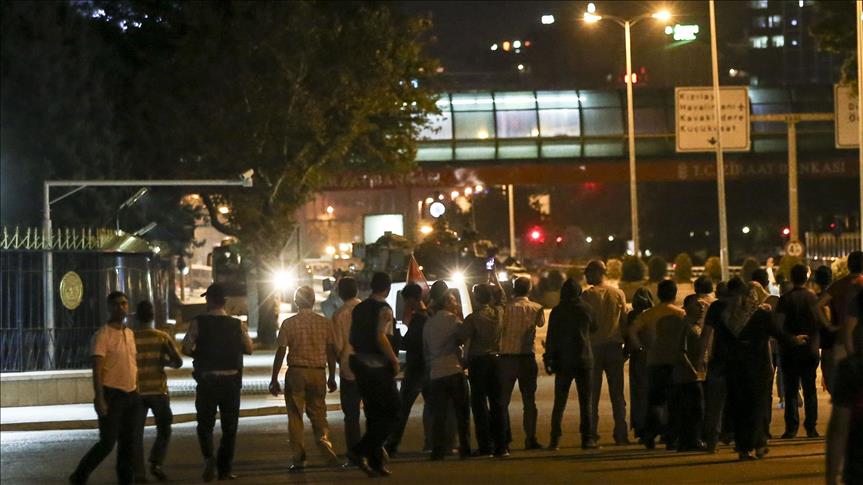
Washington DC
By Kasim Ileri
WASHINGTON
University students on Wednesday shared their thoughts and experience of being caught in a recent coup attempt in Turkey during a panel discussion at Georgetown University.
Istanbul Bogazici University senior Omer Faruk Koc said media outlets had breaking news that bridges in Istanbul were closed to guard against a potential terror attack but then he realized a coup was underway.
“I wished it had been a terrorist attack rather than a military coup as I have read history of coups and military interventions in Turkey although I did not witness myself,” Koc said at the panel organized by Georgetown University Turkish Student Association.
He said he looked down on older generations because they did not resist previous coups in Turkey but that encouraged him to take a stand against the attempted overthrow that eventually killed more than 240 victims and injured more than 2,900
He grabbed a knife from his kitchen and went out with his father.
“I wanted to be on the right side of history,” he said.
Koc saw tens of injured victims being carried to a hospital in Istanbul but it did not stop him from showing his defiance for the coup plotters.
The abortive putsch was carried out by a fraction within the Turkish military linked to U.S.-based Fetullah Gulen. The group hijacked warplanes, tanks and weapons and attacked Turkish institutions, including the parliament and the presidential palace.
Turkey’s National Security Council last year designated Gulen’s network a terrorist organization for establishing a quasi-state within the state.
Humeyra Selcukbiricik recalled being caught in the middle of the chaos in Ankara while she was enjoying recreational time with her two sisters.
She said she heard a lot about recent terror attacks in Turkey but a coup was the last thing she expected to witness.
“It was something in history books and we were getting through it again,” she said.
Turks and non-Turks were similarly affected by the events of July 15.
Safia Latif a PhD candidate at Boston University’s Department of Religion was in Istanbul with her husband for the summer to improve her Turkish language skills.
She said coup plotters from the state-run television station said they would “reinstate the Constitution and democratic values, deal with human rights” while they were killing protesters on the street.
Latif expressed her appreciation for the Turkish people’s resistance to the coup and said although a volatile situation existed, she did not leave Turkey but even participated in massive demonstrations in the ensuing days and weeks.
Latif’s husband, Rushain Abbasi, a PhD candidate at Harvard University’s Department of Near Eastern Languages said he simply felt “a deep sense of depression” and was moved by the voices of the call to prayer and prayers against the coup that rose from all the mosques in Istanbul.
“It was inspiring, it was very rare to see such a civic duty,” he said.
Anadolu Agency website contains only a portion of the news stories offered to subscribers in the AA News Broadcasting System (HAS), and in summarized form. Please contact us for subscription options.

